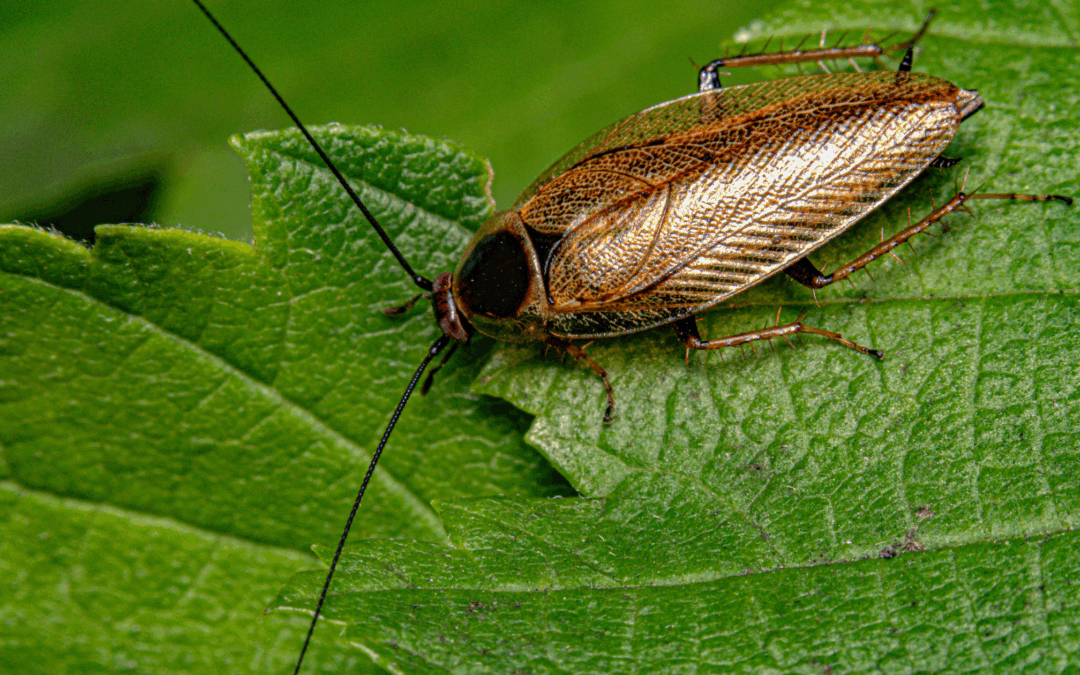READY TO GET STARTED?
REQUEST A FREE ESTIMATE
Fill out the form below or call (888) 466-7849 for a free, no-obligation estimate.

Alabama’s warm, humid climate makes it a hotspot for pests like fire ants, mosquitoes, termites, rodents, and cockroaches. These uninvited guests can disrupt your home’s comfort and even cause damage—but eco-friendly pest control strategies can help keep them at bay. Check out our guide to green pest control strategies you can use in your Alabama home.
Knowing what you’re up against makes prevention easier.
Using natural solutions protects your family and the environment while still keeping your home pest-free. Proactive habits like sealing cracks, reducing moisture, and using plant-based repellents offer long-term protection without harsh chemicals.
With a few smart steps, you can enjoy peace of mind and a pest-free home all year long—the eco-friendly way. Reach out to your local pest control experts to help you along the way.

Florida’s warm, humid climate is perfect for cockroaches, making homes vulnerable to infestations. These pests thrive in moisture, spread bacteria and allergens, and can trigger asthma. Fortunately, eco-friendly cockroach control strategies can help keep your home clean and pest-free.
Because of these factors, controlling cockroaches in Florida requires ongoing, proactive efforts.
You don’t need harsh chemicals to repel cockroaches—natural cockroach control methods are effective, healthier for your family, and eco-friendly.
Natural repellents offer a gentle, effective alternative to chemical sprays.
Prevention is key to keeping cockroaches away. A clean, well-maintained home makes it hard for them to settle.
Florida’s humid climate favors cockroaches, but eco-friendly steps like sealing entry points, fixing leaks, decluttering, and using natural repellents can keep them away. For persistent infestations, seek a pest control professional specializing in green solutions.

Keeping pests out of your business isn’t just about comfort; it’s about protecting your employees, customers, and reputation. Whether you operate a restaurant, manage a healthcare facility, or run a retail store, choosing the right commercial pest control partner is key to maintaining a healthy and thriving environment.
The best way to ensure you’re choosing the right provider? Ask the right questions. Below are the critical points to consider when hiring a commercial exterminator.
Every business has unique needs, from industry-specific regulations to building layouts and pest pressures. A strong pest control provider should tailor their approach to fit those needs.
At Northwest, we create customized plans built around your schedule and operations, ensuring your business stays protected without disruption.
Different industries face different challenges. Restaurants may be at risk for flies and roaches, while warehouses often face rodent infestations. Your pest control company should have the expertise to handle a variety of pests and prevent them from recurring.
We specialize in comprehensive pest management for all types of business environments, tackling everything from ants and spiders to rodents and cockroaches.
Today’s businesses demand pest control that’s both effective and environmentally conscious. Ask about the company’s commitment to healthy, sustainable practices that minimize their impact on people, pets, and the planet.
Northwest’s Green Pest Control solutions use smart, innovative methods to manage pests responsibly, giving you peace of mind alongside reliable results.
Pest control shouldn’t stop at a single treatment. Look for providers who offer preventative services, seasonal adjustments, and quick responses to new infestations.
With Northwest, you’ll benefit from proactive, year-round pest control focused on prevention, backed by responsive support whenever you need it.
Proper training and certifications are vital for quality pest management. Make sure technicians are licensed and continuously trained to stay current with the latest methods and updated protocols.
Our licensed professionals at Northwest undergo ongoing education to ensure they’re equipped with the expertise to protect your business.
Partnering with the right pest control provider isn’t just a decision; it’s a commitment to protecting your business’s health, protection, and reputation. At Northwest, we pride ourselves on delivering customized, eco-friendly solutions that keep pests out while respecting the unique needs of your business.
Get in touch with our team today to learn how we can help protect what matters most and keep your business pest-free all year long.

Summer in Miami means sunshine, ocean breezes—and unfortunately, pests. The city’s warm, humid climate is the perfect environment for ants, mosquitoes, cockroaches, and rodents to thrive. But instead of relying on harsh chemicals, you can take a greener, more sustainable approach to keep pests out. Let’s take a look at some green pest control tips to use this summer.
Miami’s heat and humidity, along with frequent rain, create ideal conditions for pests. Standing water attracts mosquitoes, while food and shelter draw in roaches and ants. Staying pest-free means taking proactive, eco-friendly steps to protect your home and the environment.
Cleanliness is the foundation of a pest-free home. By removing food and water sources, you can drastically reduce the chances of pests moving in.
Pests often find their way inside through tiny cracks and gaps. Blocking these entryways is essential.
Green repellents are just as effective as chemical-based ones without the environmental impact.
Mosquitoes require standing water to breed, making it crucial to eliminate these areas on your property.
A well-maintained yard makes it harder for pests to find shelter near your home.
By choosing eco-friendly pest prevention methods or partnering with green pest control experts, you protect your Miami home from summer pests while contributing to a healthier environment. These pest control practices reduce your reliance on harmful chemicals, protect local wildlife, and make your home healthier for family members and pets.
A bit of effort and a green approach can keep your summer pest-free and stress-free. Start today and enjoy the season without worrying about unwelcome guests! Give us a call or click the button below to schedule your FREE green pest control quote!

Summers in Bonita Springs bring warmth and outdoor fun, but they also invite summer pests like ants, mosquitoes, and rodents. Thankfully, you can manage these visitors using natural approaches that prioritize both your home and the environment. Follow these eco-friendly tips to enjoy a pest-free summer.
Ants are persistent, but reducing their appeal to your home is effective.
Planting mint or tansy near your home can also help discourage ants.
Mosquitoes thrive in humid summers, but you can reduce their activity.
Rodents look for food, water, and shelter during summer. Prevent their entry with these steps:
Nature offers its own solutions for pests through natural predators.
A thriving ecosystem can help keep pest populations in check while enhancing the beauty of your yard.
A clean home offers fewer opportunities for pests to linger.
Eco-friendly pest prevention protects your home while nurturing the environment. With strategies like eliminating entry points, planting natural deterrents, and fostering a balanced ecosystem, you can enjoy a comfortable Bonita Springs summer. A little preparation goes a long way towards ensuring your home is a haven for you, not pests, all season long. Find a professional pest control company near you for even more expert tips and a free comprehensive inspection and treatment plan.
Give us a call today or click the button below for a FREE green pest control quote!